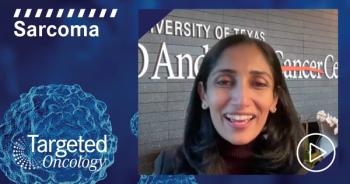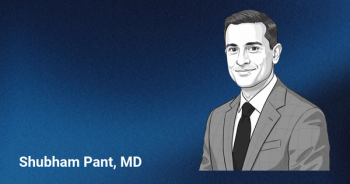
Exploring Potential Curative Therapies for Diffuse Large B-Cell Lymphoma
John M. Pagel, MD, PhD, discusses the current setting of diffuse large B-cell lymphoma and some of the treatments available at the moment.
John M. Pagel, MD, PhD, chief of the Hematological Malignancies Program at the Swedish Cancer Institute, discusses the current setting of diffuse large B-cell lymphoma (DLBCL) and some of the treatments available at the moment. He brings attention to the addition of polatuzumab vedotin (Polivy) to bendamustine and rituximab (Rituxan) for patients with relapsed/refractory DLBCL, which he says is an active, well-tolerated regimen. He hopes that this regimen is leading to curative therapy in this setting and mentions possibilities such as a chimeric antigen receptor t-cell treatment or autologous stem cell transplant.
Pagel explains that when patients with DLBCL relapse, they won’t be as responsive to chemotherapy in later lines of treatment, even if the treatment is changed in a small way. For example, he says for the patients who received rituximab, cyclophosphamide, doxorubicin, vincristine, and prednisone (R-CHOP) and had short or no remission on that treatment, those patients may not receive benefit from bendamustine and rituximab. He thinks that adding another agent like polatuzumab may lead to synergy with the other drugs.




















